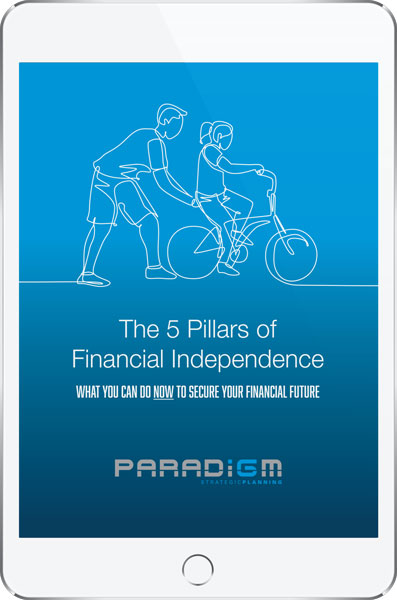Here are ten quick and easy financial planning tips to help you manage debt better:
1. Consolidate
Pool all your debts into one. The benefit here is that you may reduce your overall interest cost. This would certainly be the case if you use a line of credit facility and combine high-interest credit cards. If the line of credit was attached to your mortgage, however, you’d be eating into the equity on your home, which may be an unwise strategy in some cases.
2. Use a consolidated cash account
Set up your income sources including your salary, interest and dividends from investments and rental income, to be paid into the one consolidated cash account such as a cash management trust (‘CMT’) or high-interest cash account. Organise for all loan repayments to be deducted from the account automatically. This takes the worry out of paying things on time.
3. Draw up a budget
It seems an obvious step, but few people do it effectively. Knowing what you spend, what you earn and the difference between the two is a real leveller. Detail essential and non-essential expenditure. If you fall short on meeting bills and debt repayments, you’ll know something has to give and you can start to cut back from the non-essential side. The reduction may only need to be for a limited period of time until your debts are back in control.
4. Use taxation benefits
While tax alone is the wrong reason on which to base investment decisions, it should certainly be a consideration. Lower tax can help to boost your effective returns. Consider how you can maximise the tax effectiveness of your investment decisions. For example, the 50% reduction in the taxable profit if you sell an investment that you have held for at least 12 months is one way investors can increase returns. Increased after-tax returns can help repay debt.
5. Be smart with lump sums
You may be tempted when receiving a lump-sum payment like a tax return, inheritance or windfall gain to take that much-deserved holiday or to buy a new wardrobe or the latest sports car. Don’t! The short-term satisfaction won’t last, particularly with debt collectors at your door. Use the money to reduce your debt to more manageable levels.
6. Get smart with credit
If used wisely, a credit card with an interest-free period and a drawdown facility (line of credit) on your mortgage can get you ahead at a low-interest cost. Pay all of your salary onto your mortgage and use your credit card to pay all your bills and outgoings. Then drawdown from your line of credit each month to pay the credit card bill just before the interest-free period ends. The danger here, of course, is that you may spend too freely on clothes, restaurant meals and other non-essentials and you’re effectively paying for these with equity from your home. Such behaviour could put you years behind in paying off your house. So don’t spend more than you put into your mortgage each fortnight, and in fact, try to spend less.
7. Be wary of “interest-free” offers
These are broadly offered on electrical goods and furniture and can be a trap because the interest rate you may be required to pay on your outstanding balance at the end of the interest-free period is generally very high. Penalties may also apply if you are late with any payments. Before buying using such an offer, make sure you have adequate cash flows to enable you to make regular repayments with a view to paying off the loan before the end of the interest-free period.
8. Be careful of short-term lending facilities
Money exchange services are an example, and they can be very costly. Credit providers in Australia known as “payday lenders” operate national distribution networks and specialise in short-term, high-cost loans to consumers experiencing a cash crisis. Such facilities should only be used as a last resort.
9. Keep some emergency money aside
While you may be juggling your finances to meet all of your commitments, make sure you have a small cash reserve for unforeseen circumstances. This will protect you from being forced to accept costly, short-term lending arrangements.
10. Pay your debts automatically
Talk to your employer to see whether you can have your salary paid into multiple accounts, including your debt accounts. The obvious benefit is that your income flows will be better managed and the money disappears before you get it, thus reducing the temptation to spend instead of repaying debt. Alternatively, have set amounts deducted from a nominated account to automatically pay outstanding debts. The trick here is to make sure you have enough money in the account when the deduction falls due, otherwise, your bank may hit you with a nasty fee for dishonouring the arrangement.
More like this
 If you like this article, you might be interested to know that we share useful thoughts and information like this in our monthly financial insights email. You can subscribe to that email here. All subscribers receive a copy of our e-book: The 5 Key Pillars of Financial Independence.
If you like this article, you might be interested to know that we share useful thoughts and information like this in our monthly financial insights email. You can subscribe to that email here. All subscribers receive a copy of our e-book: The 5 Key Pillars of Financial Independence.
General Advice Disclaimer
This article contains general advice only, which has been prepared without taking into account the objectives, financial situation or needs of any person. You should, therefore, consider the appropriateness of the information in light of your own objectives, financial situation or needs and read all relevant Product Disclosure Statements before acting on the information. Whilst every care has been taken to ensure the accuracy of the material, Paradigm Strategic Planning or Sentry Advice Pty Ltd will not bear responsibility or liability for any action taken by any person, persons or organisation on the purported basis of information contained herein. Without limiting the generality of the foregoing, no person, persons or organisation should invest monies or take action on reliance of the material contained herein but instead should satisfy themselves independently of the appropriateness of such action.
Paradigm Strategic Planning Pty Ltd is an Authorised Representative of Sentry Advice Pty Ltd AFSL 227748
